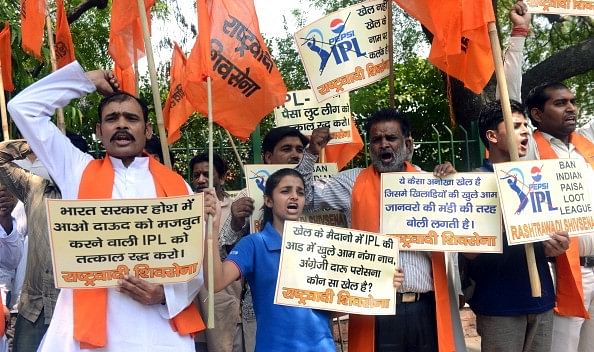
Cleaning Cricket with Law - Why Indian players who indulge in fixing are getting away from the law

The IPL 2013 spot-fixing scandal could inarguably be termed as the most shocking and disturbing incidents which shook the roots of Cricket governance in India. It bought out the irregularities in sport management and high levels of corruption which were affecting the integrity of the sport. That finally ended when a Delhi trial Court dropped all charges against the three Cricketers (S. Sreesanth, Ajit Chandila and Ankit Chavan) who were accused for spot-fixing on the ground that there wasn’t sufficient evidence against them.
However, the Board for control of Cricket in India (BCCI) upheld the ban on the three Cricketers not allowing them to play for India. This article will reflect upon on two major points. First, is the ban by the BCCI justified? Second, does India urgently need a strict anti-fixing legislation?
BCCI Ban Justified
The ban by the BCCI is maintainable as it is a decision of an independent governing body which has the power to regulate such activities for betterment of the game. Though the Cricketers have been discharged by the Court, the investigation carried out by the anti-corruption and security unit of the BCCI headed by Neeraj Kumar has found enough evidence against them under the BCCI code to hold them guilty.
“In the BCCI code, there is a specific offence of match-fixing and in the Indian law, there is no such specific provision. I can tell you that there was sufficient evidence that was considered by the disciplinary committee and based on that they came to a conclusion,” said Ravi Sawani, who investigated the case for BCCI.
This very clearly points out that match fixing (including spot-fixing and cheating) is a crime under the BCCI code and even though the three players were let off under the provisions of the Indian Penal Code (IPC) and Maharashtra Control of Organized Crime Act ( hereinafter MCOCA), BCCI has the right to ban them.
Need For a ‘Anti Fixing’ Law
Match fixing is not a criminal offence in India. No Indian Criminal statute specifically defines any match fixing acts as a crime. Players are charged under various other penal statutes but eventually are acquitted because there is no particular act to punish them.
The spot-fixing case which was being investigated by the special cell of Delhi police has given us a strong reason to come up with a strict anti-fixing law for better regulation of Cricket in the country.
Past cases show that investigating agencies have used provisions of various penal statutes such as the IPC, Prevention of Corruption Act (PCA) and MCOCA to investigate and prosecute the accused in match-fixing cases. But that hasn’t yielded any positive results as it becomes difficult for Courts to convict the accused under these acts as they don’t provide for stringent provisions to punish the guilty. Hence we need a proper and separate legislation which will help in a clean investigation of the cases.
The recently pronounced judgment raises the question and need for an anti-fixing law in the country to promote the sport in its right spirit. The lack of a law not only paves way for anti-sport activities but also helps the accused in escaping criminal liability and walk free easily. The Court in this case observed “ in view of the huge vacuum of law in this regard it is helpless to proceed further under any of the penal statutes.” discharging all the three accused of the charges under the IPC and MCOCA.
This is not the first case when the accused persons were let off due to unavailability of legislation. Even in the case of Mohammed Azharuddin, he was banned by the BCCI from playing Cricket but was successful in escaping Criminal liability. It’s been 15 years since then but the situation hasn’t changed. After the 2013 scandal, the union law minister at that time promised to push for a legislation to deal with fixing cases in India. But that seems too far a dream.
The Country needs a law to deal with the match fixing and spot fixing incidents which will not only act as a deterrent but also help to keep the game clean. With increased commercialization of sports, there is a need for a disciplined management and proper legislation to promote sports in a healthy spirit.